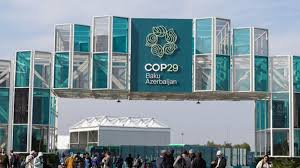NEW DELHI: At the ongoing COP29 negotiations in Baku, India expressed resentment with developed countries for not seriously discussing ways to support developing countries in mitigating the effects of climate change.
India said that developed countries which had historically contributed more to carbon emissions had constantly delayed climate action and also not committed to transference of technology and funds for developing countries to take measures against the impact of climate change.
“We have seen no progress in matters that are critical for developing countries. Our part of the world is facing some of the worst impacts of climate change, with far lower capacity to recover from those impacts or to adapt to the changes to the climatic system for which we are not responsible,” India’s statement at COP29 read.
Delivering a statement in the closing plenary of the subsidiary bodies’ meeting on the Mitigation Work Programme (MWP), India said if there were no means of implementation like financial support, technology and capacity-building, developing countries and low-income economies would not be able to cut greenhouse gas emissions.
The statement further read, “We notice a tendency to ignore the decisions taken in the past – related to the Sharm el-Sheikh mitigation ambition and implementation work programme at COP27 and the context of the Global Stocktake in the Paris Agreement, where it informs the parties for undertaking climate actions.”
India stressed that the MWP was established in COP26 so that developing countries could share ideas to cut down emissions and not to create any new targets for them. However, developing nations at the climate summit want the scope of MWP to be expanded wherein all countries should act immediately on climate action.
Expressing frustration on the unwillingness to engage on this issue by the developed countries during the past week, the statement read, “If there are no means of implementation, there can be no climate action. How can we discuss climate action, when it is being made impossible for us to act, even as our challenges in dealing with the impacts of climate change are increasing?”


